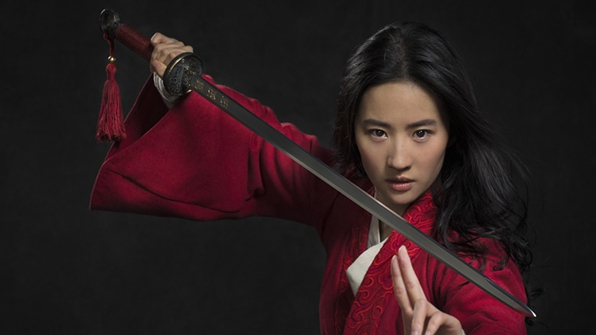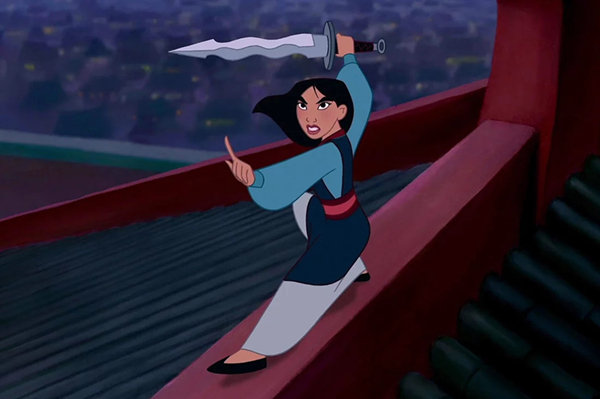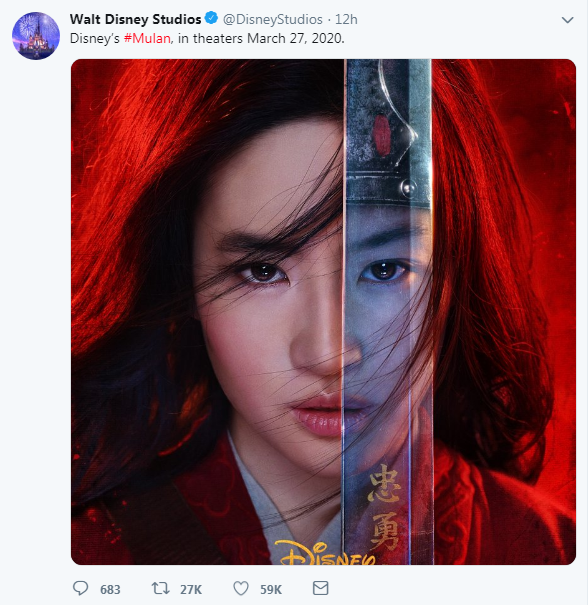
This is People’s Daily Tonight, your news source from China.
Why is Disney making Mulan 'authentically Chinese'?
This week saw Disney release a trailer for the live action production of “Mulan,” a story based on a Chinese legend of a female warrior from the Northern and Southern Dynasties period (420–589) who went into battle in place of her father. The story had previously been the subject of a 1998 animated film, which was known for its musical score and somewhat comedic tone.

(Photo: CGTN)
However, owing to its somewhat "American-centric" cultural connotations, Disney's original production ultimately failed to make the grade in China itself, failing to connect with local audience.
With this new production, however, Disney is determined to change the game. Eyeing the increasingly lucrative and growing role of the Chinese cinema market, commentators note that the company is determined to create a film which China can take pride in and call its own.
To do so, observers have highlighted how the film is less "America-centric" than before, with some Western audiences being disappointed with the dropping of musical items, comedic characters and also the removal of “cultural mistakes” from the original. So far, this has received a positive feedback on Weibo, but we can never quite know until 2020.

A file photo of Hua Mulan from Disney's 1998 animated feature film "Mulan." (Photo: Walt Disney Studios)
The US film industry dominates the world of entertainment. Since their emergence in the early 20th century, American films have been an unmatched source of global culture, popularity and inspiration. These productions have shaped and captured the dreams of billions of people.
Now, however, the game is changing. China’s rapid development, as well as other countries, has radically changed the way people live and in turn rapidly increased people’s ability to attend the cinema regularly. This has created an entirely new opportunity for American films. In May, the blockbuster “Avengers: Endgame” made over 600 million US dollars in China, a new record for a foreign film in the country.
Therefore if the industry wishes to do even better in China, then they have to be able to culturally connect with the country on its own terms and understanding. Previously, Disney films about “foreign” countries and legends have been plagued with orientalist tropes, cultural caricatures and stereotypes; making them offensive to the depicted nation itself.

Walt Disney released a poster of the film "Mulan." (Screenshot via Twitter)
Thus, in remaking Mulan into a live-action film and attempting to get it “accurate” in Chinese terms, Disney is shaping their production to be as culturally authentic as possible and to move beyond the “American-centric” inhibitors and flaws of the animated version. With the local market proving to be very lucrative, the aim is to secure Chinese acceptance of it.
Western audiences should see the new Mulan as an opportunity and, accordingly, accept broader cultural shifts and diversity within global films. Whilst American films will continue to dominate global entertainment, they have not been known for offering an authentic and balanced perception of the world, or for the inclusion of “other” perspectives and cultural takes.
The fact that Disney is prepared to shake up and shift its cultural boundaries to adapt to a broadening global audience is a great opportunity for Western audiences to broaden their perspectives and to think differently about the world. Films about other nations and cultures should not be based on American stereotypes and clichés as to how they “imagine” those peoples to be, but real and authentic takes.
And that's People's Daily Tonight. Thanks for joining us.
(Produced by Han Xiaomeng; text from CGTN)


